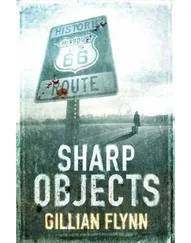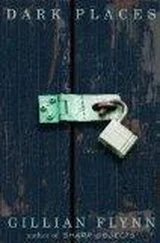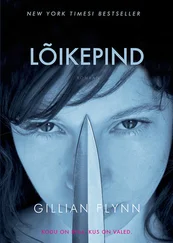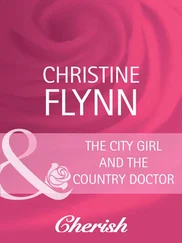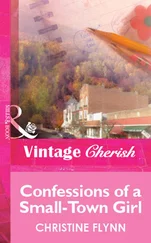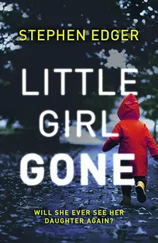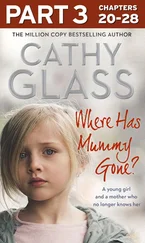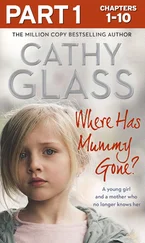“I’ll go pack.” My hands left sweatprints on the chair.
I had no pets to worry about, no plants to leave with a neighbor. Into a duffel bag, I tucked away enough clothes to last me five days, my own reassurance I’d be out of Wind Gap before week’s end. As I took a final glance around my place, it revealed itself to me in a rush. The apartment looked like a college kid’s: cheap, transitory, and mostly uninspired. I promised myself I’d invest in a decent sofa when I returned as a reward for the stunning story I was sure to dig up.
On the table by the door sat a photo of a preteen me holding Marian at about age seven. We’re both laughing. She has her eyes wide open in surprise, I have mine scrunched shut. I’m squeezing her into me, her short skinny legs dangling over my knees. I can’t remember the occasion or what we were laughing about. Over the years it’s become a pleasant mystery. I think I like not knowing.
I take baths. Not showers. I can’t handle the spray, it gets my skin buzzing, like someone’s turned on a switch. So I wadded a flimsy motel towel over the grate in the shower floor, aimed the nozzle at the wall, and sat in the three inches of water that pooled in the stall. Someone else’s pubic hair floated by.
I got out. No second towel, so I ran to my bed and blotted myself with the cheap spongy blanket. Then I drank warm bourbon and cursed the ice machine.
Wind Gap is about eleven hours south of Chicago. Curry had graciously allowed me a budget for one night’s motel stay and breakfast in the morning, if I ate at a gas station. But once I got in town, I was staying at my mother’s. That he decided for me. I already knew the reaction I’d get when I showed up at her door. A quick, shocked flustering, her hand to her hair, a mismatched hug that would leave me aimed slightly to one side. Talk of the messy house, which wouldn’t be. A query about length of stay packaged in niceties.
“How long do we get to have you for, sweetness?” she’d say. Which meant: “When do you leave?”
It’s the politeness that I find most upsetting.
I knew I should prepare my notes, jot down questions. Instead I drank more bourbon, then popped some aspirin, turned off the light. Lulled by the wet purr of the air conditioner and the electric plinking of some video game next door, I fell asleep. I was only thirty miles outside my hometown, but I needed one last night away.
Dark Places
Libby Day
NOW
I have a meanness inside me, real as an organ. Slit me at my belly and it might slide out, meaty and dark, drop on the floor so you could stomp on it. It’s the Day blood. Something’s wrong with it. I was never a good little girl, and I got worse after the murders. Little Orphan Libby grew up sullen and boneless, shuffled around a group of lesser relatives—second cousins and great-aunts and friends of friends—stuck in a series of mobile homes or rotting ranch houses all across Kansas. Me going to school in my dead sisters’ hand-me-downs: Shirts with mustardy armpits. Pants with baggy bottoms, comically loose, held on with a raggedy belt cinched to the farthest hole. In class photos my hair was always crooked—barrettes hanging loosely from strands, as if they were airborne objects caught in the tangles—and I always had bulging pockets under my eyes, drunk-landlady eyes. Maybe a grudging curve of the lips where a smile should be. Maybe.
I was not a lovable child, and I’d grown into a deeply unlovable adult. Draw a picture of my soul, and it’d be a scribble with fangs.
IT WAS MISERABLE,wet-bone March and I was lying in bed thinking about killing myself, a hobby of mine. Indulgent afternoon daydreaming: A shotgun, my mouth, a bang and my head jerking once, twice, blood on the wall. Spatter, splatter. “Did she want to be buried or cremated?” people would ask. “Who should come to the funeral?” And no one would know. The people, whoever they were, would just look at each other’s shoes or shoulders until the silence settled in and then someone would put on a pot of coffee, briskly and with a fair amount of clatter. Coffee goes great with sudden death.
I pushed a foot out from under my sheets, but couldn’t bring myself to connect it to the floor. I am, I guess, depressed. I guess I’ve been depressed for about twenty-four years. I can feel a better version of me somewhere in there—hidden behind a liver or attached to a bit of spleen within my stunted, childish body—a Libby that’s telling me to get up, do something, grow up, move on. But the meanness usually wins out. My brother slaughtered my family when I was seven. My mom, two sisters, gone: bang bang, chop chop, choke choke. I didn’t really have to do anything after that, nothing was expected.
I inherited $321,374 when I turned eighteen, the result of all those well-wishers who’d read about my sad story, do-gooders whose hearts had gone out to me . Whenever I hear that phrase, and I hear it a lot, I picture juicy doodle-hearts, complete with bird-wings, flapping toward one of my many crap-ass childhood homes, my little-girl self at the window, waving and grabbing each bright heart, green cash sprinkling down on me, thanks, thanks a ton! When I was still a kid, the donations were placed in a conservatively managed bank account, which, back in the day, saw a jump about every three–four years, when some magazine or news station ran an update on me. Little Libby’s Brand New Day: The Lone Survivor of the Prairie Massacre Turns a Bittersweet 10. (Me in scruffy pigtails on the possum-pissed lawn outside my Aunt Diane’s trailer. Diane’s thick tree-calves, exposed by a rare skirt, planted in the yellow grass behind me.) Brave Baby Day’s Sweet 16! (Me, still miniature, my face aglow with birthday candles, my shirt too tight over breasts that had gone D-cup that year, comic-book sized on my tiny frame, ridiculous, porny.)
I’d lived off that cash for more than thirteen years, but it was almost gone. I had a meeting that afternoon to determine exactly how gone. Once a year the man who managed the money, an unblinking, pink-cheeked banker named Jim Jeffreys, insisted on taking me to lunch, a “checkup,” he called it. We’d eat something in the twenty-dollar range and talk about my life—he’d known me since I was this-high, after all, heheh. As for me, I knew almost nothing about Jim Jeffreys, and never asked, viewing the appointments always from the same kid’s-eye view: Be polite, but barely, and get it over with. Single-word answers, tired sighs. (The one thing I suspected about Jim Jeffreys was that he must be Christian, churchy—he had the patience and optimism of someone who thought Jesus was watching.) I wasn’t due for a “checkup” for another eight or nine months, but Jim Jeffreys had nagged, leaving phone messages in a serious, hushed voice, saying he’d done all he could to extend the “life of the fund,” but it was time to think about “next steps.”
And here again came the meanness: I immediately thought about that other little tabloid girl, Jamie Something, who’d lost her family the same year—1985. She’d had part of her face burned off in a fire her dad set that killed everyone else in her family. Any time I hit the ATM, I think of that Jamie girl, and how if she hadn’t stolen my thunder, I’d have twice as much money. That Jamie Whatever was out at some mall with my cash, buying fancy handbags and jewelry and buttery department-store makeup to smooth onto her shiny, scarred face. Which was a horrible thing to think, of course. I at least knew that.
Finally, finally, finally I pulled myself out of bed with a stage-effect groan and wandered to the front of my house. I rent a small brick bungalow within a loop of other small brick bungalows, all of which squat on a massive bluff overlooking the former stockyards of Kansas City. Kansas City, Missouri, not Kansas City, Kansas. There’s a difference.
Читать дальше

